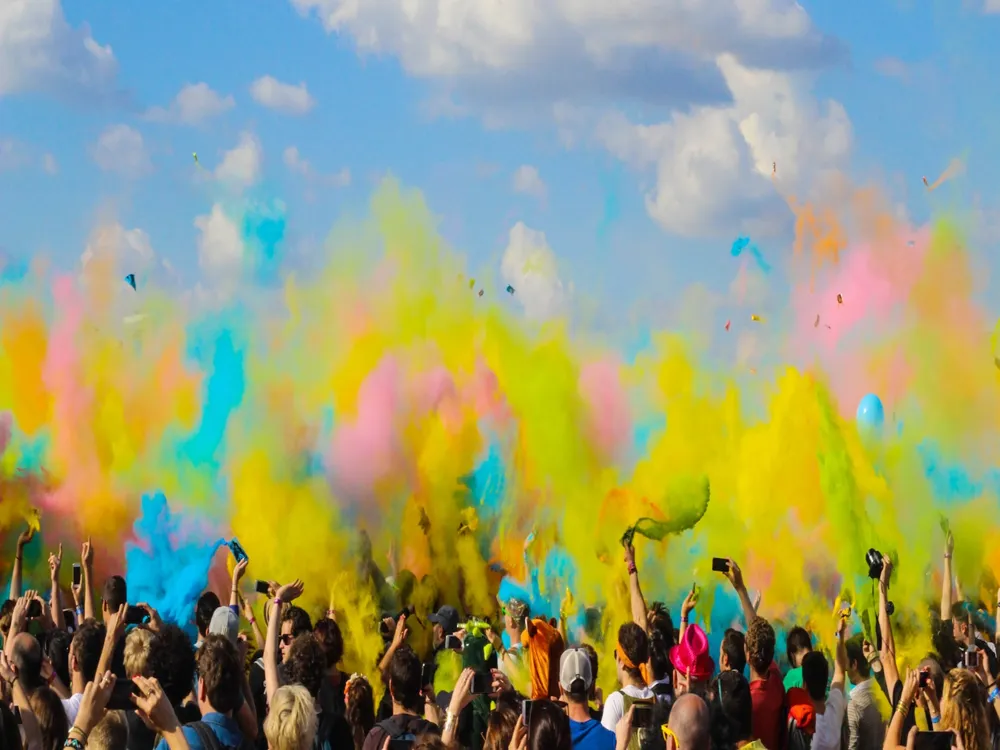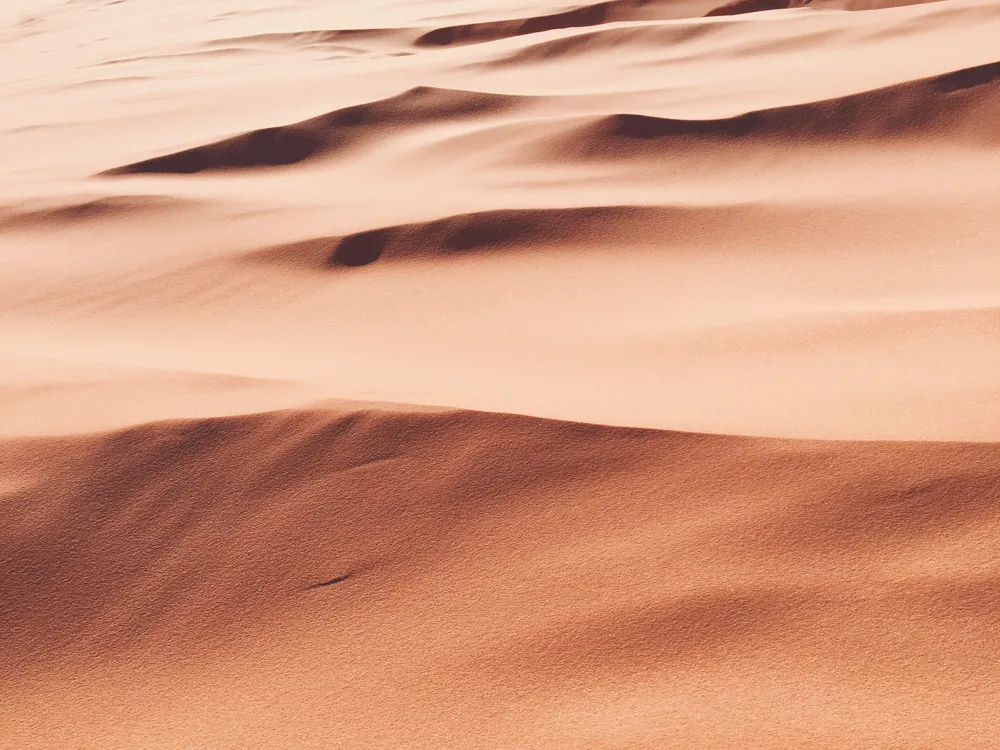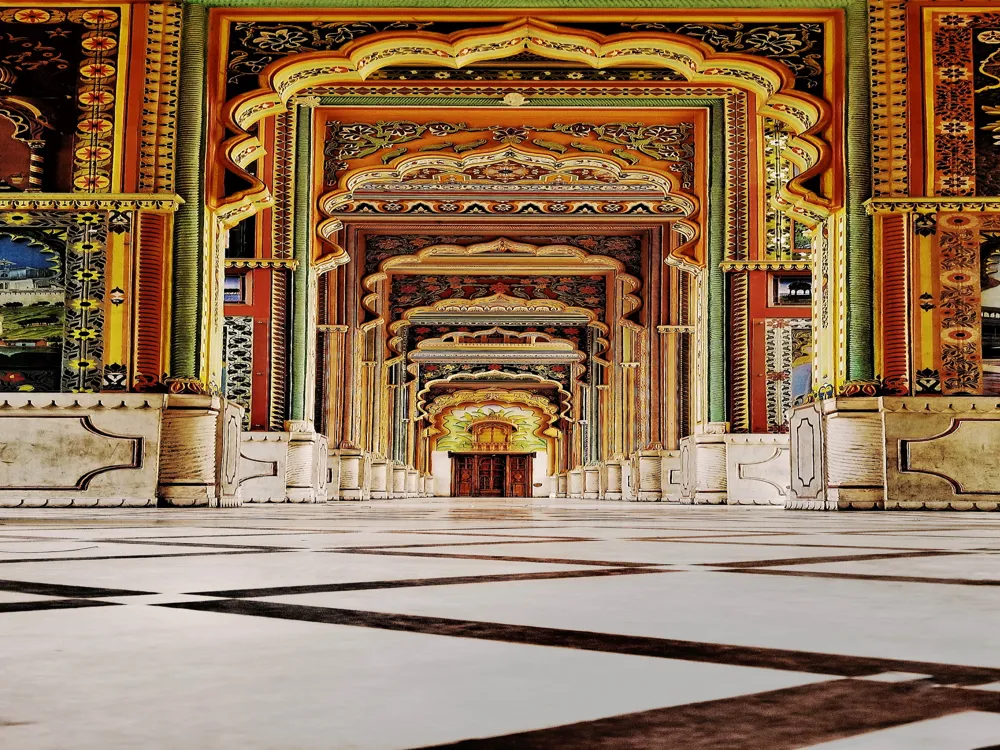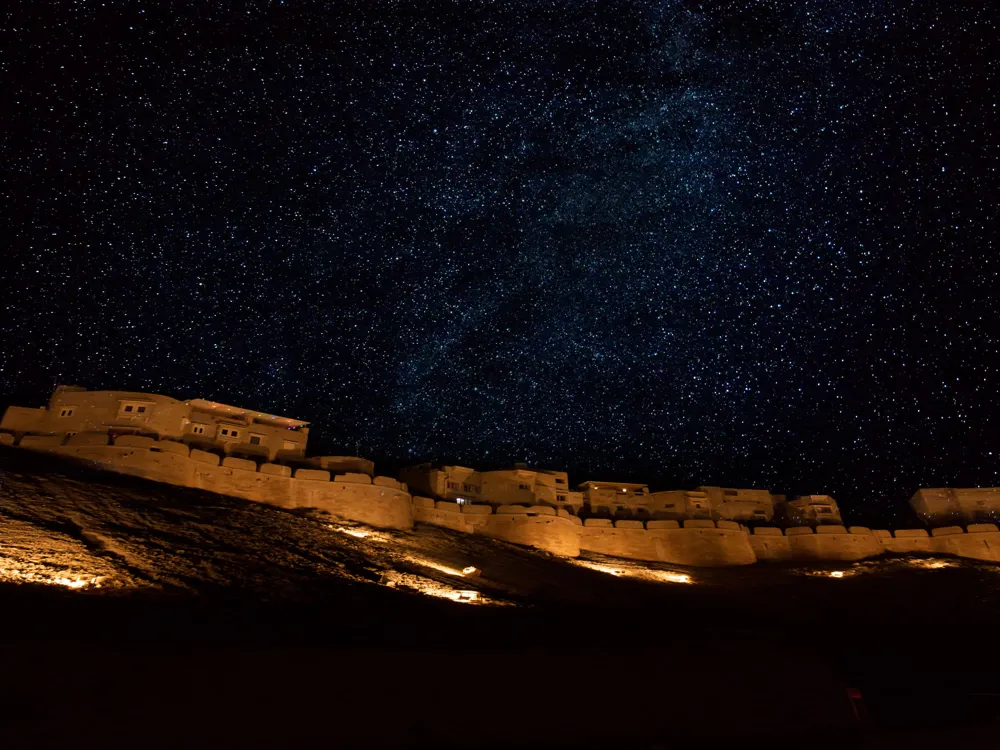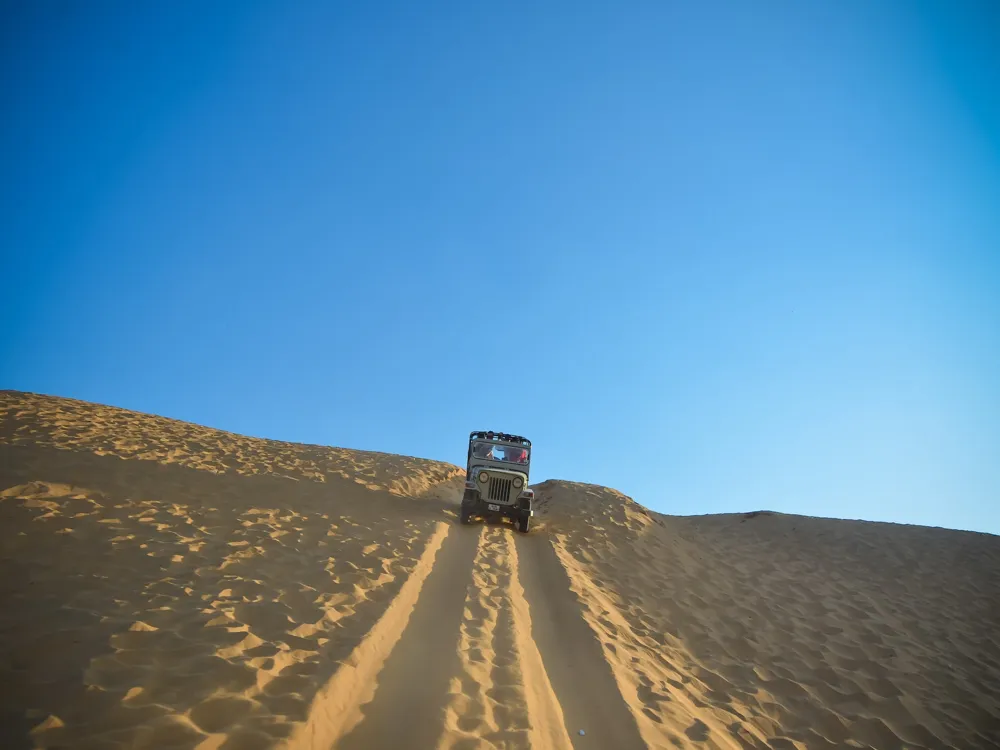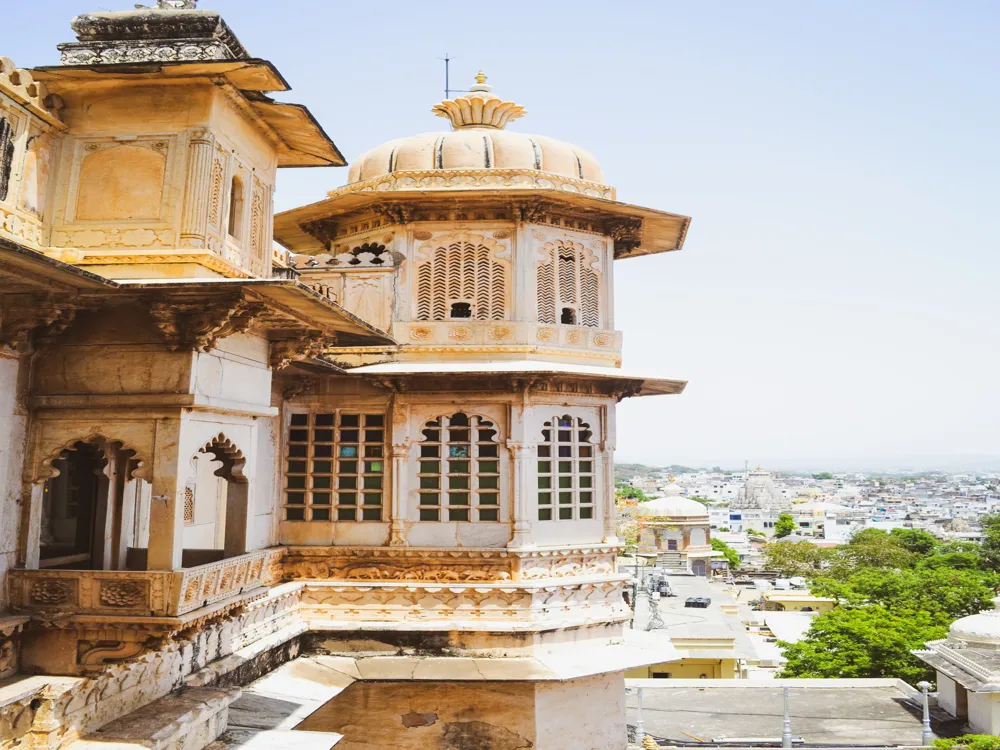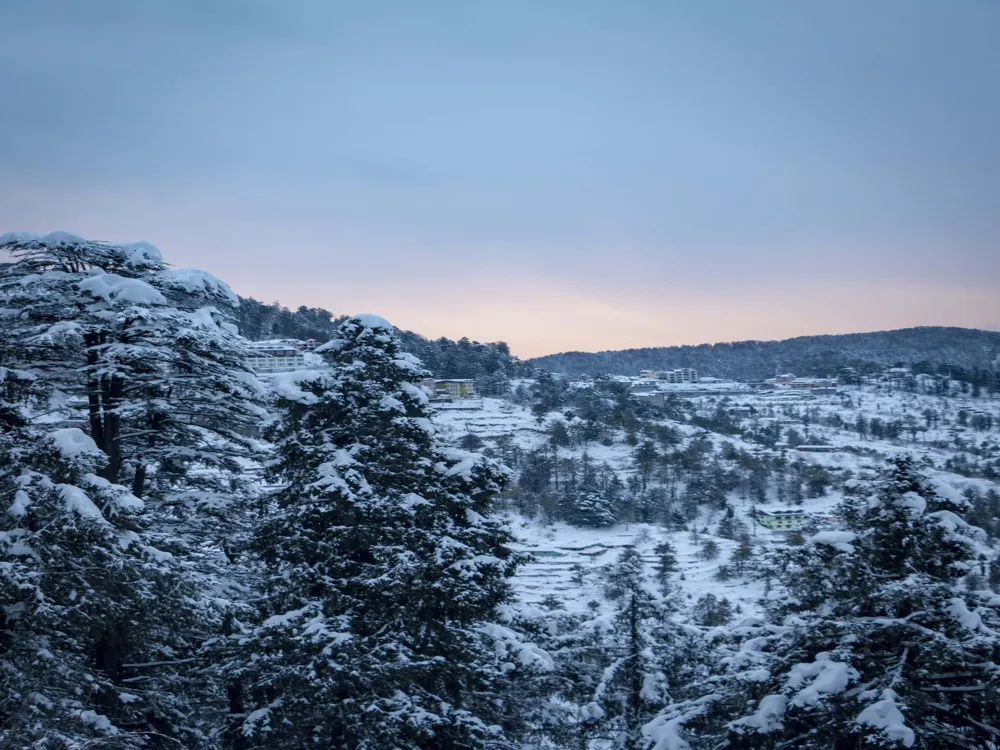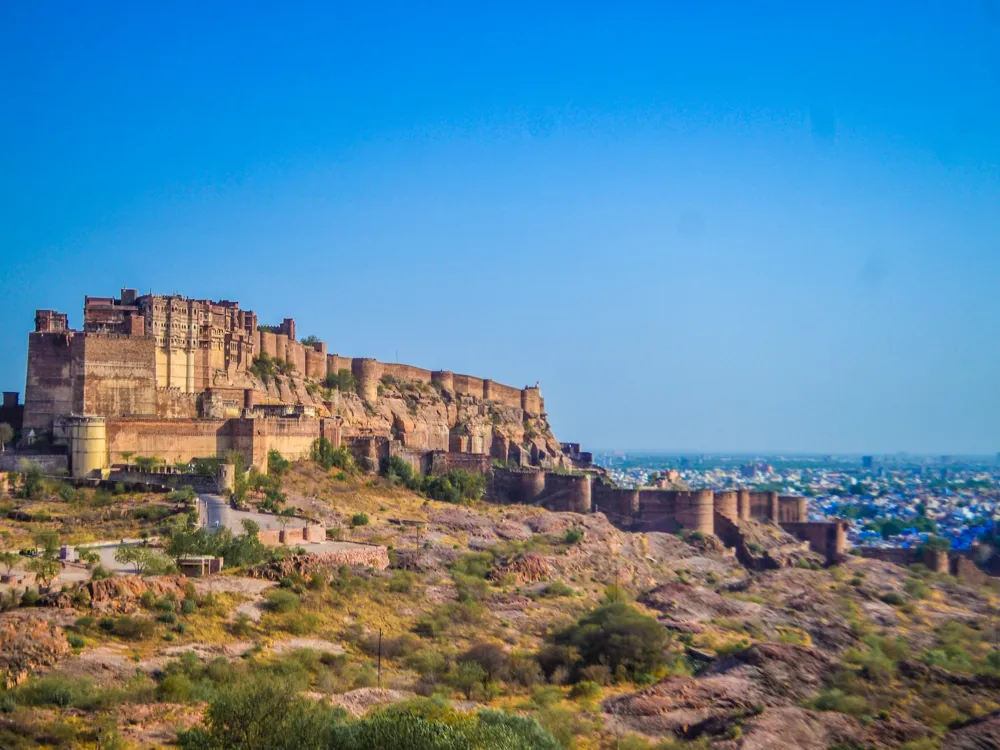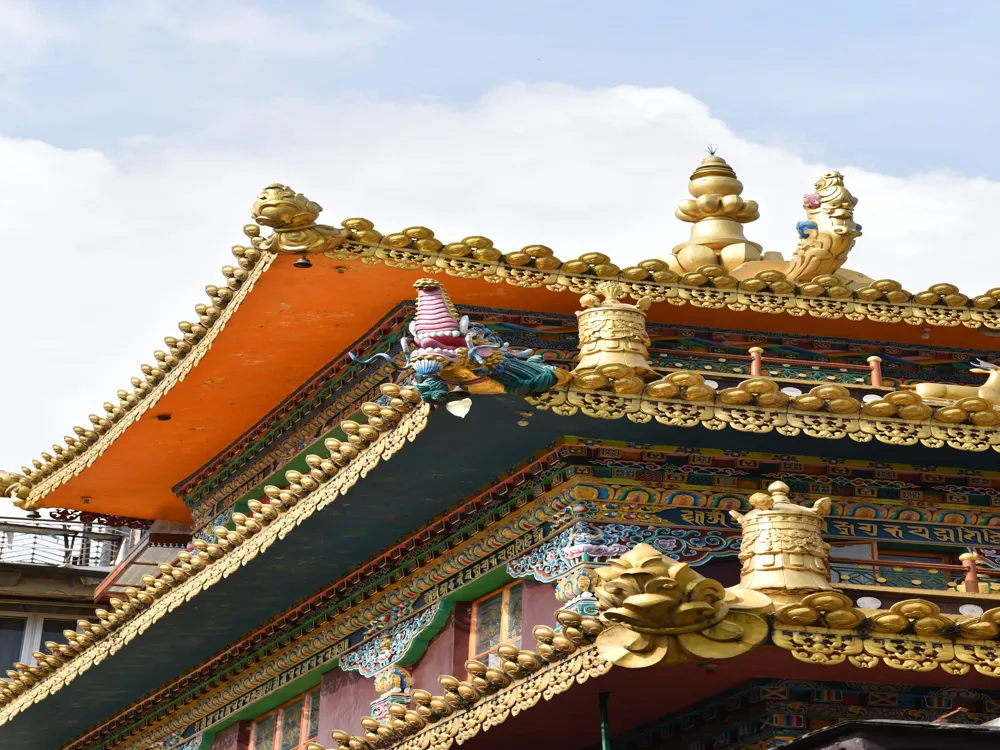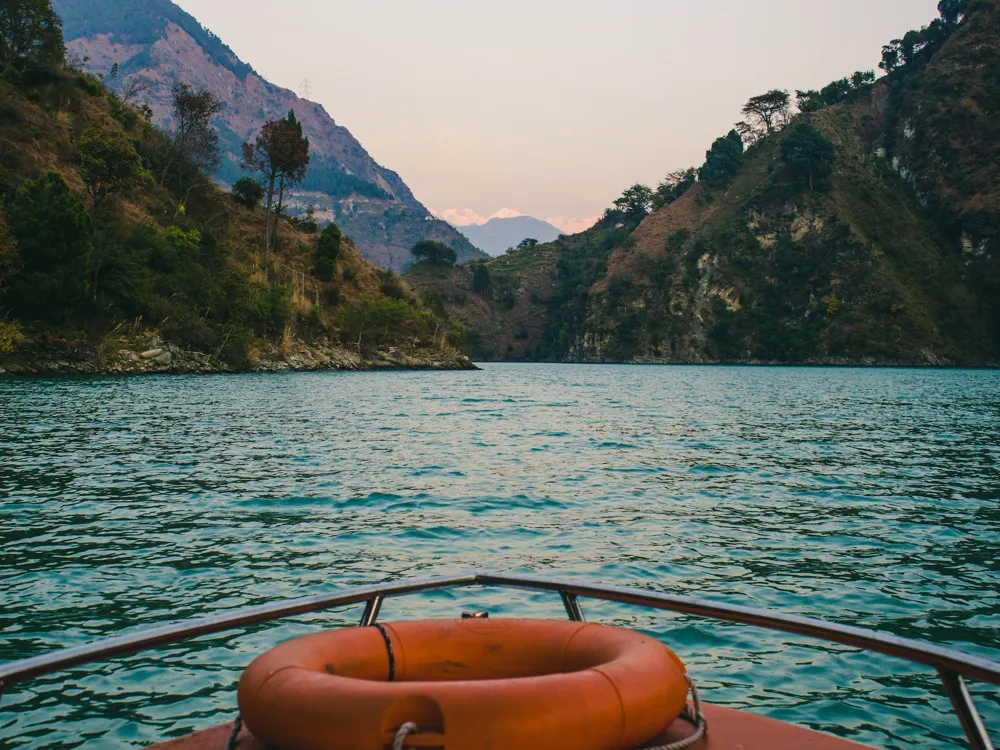The Bikaner Camel Festival, a vibrant and colorful event, is held annually in Bikaner, Rajasthan. This spectacular festival, organized by the Department of Tourism, Art & Culture, celebrates the importance of camels in the desert region of Rajasthan. The festival spans two days and is typically held in January, coinciding with the auspicious Pongal festival. The Bikaner Camel Festival begins with a magnificent procession of bedecked camels against the backdrop of the majestic Junagarh Fort. It is an exclusive camel fair, showcasing the hardy animal and its role in the lives of the desert people. The festival includes various activities such as camel races, camel milking, fur cutting design, best breed competition, camel acrobatics, and camel bands. The camels are adorned with vibrant bridles, bejeweled necks, jingling anklets, and long, lanky camel shadow puppets. Visitors also witness traditional Rajasthani folk dances and music. The event concludes with a stunning fire dance and a grand finale of spectacular fireworks which light up the desert city of Bikaner. In Rajasthan, camels are not just animals; they are a vital part of the desert life and culture. Known as the 'ship of the desert,' camels have been long used for transport and as a source of nutrition in the arid regions of Rajasthan. The Bikaner Camel Festival pays homage to these animals, recognizing their contribution to the survival of the desert people. The festival also aims to preserve and promote the various breeds of camels found in Rajasthan. One of the main attractions of the Bikaner Camel Festival is the camel race, a highly competitive event where the fastest camels compete. Another crowd-pleaser is the camel dance, where trained camels perform to the tune of traditional Rajasthani music. The festival also features a camel decoration contest where owners display their creativity in adorning their camels with colorful accessories and body art. Aside from camel-centric events, the festival also showcases Rajasthani art, culture, and handicrafts. Traditional crafts and textiles are on display and for sale, offering visitors a chance to take home a piece of Rajasthani culture. Food stalls serve local delicacies, providing an authentic taste of Rajasthani cuisine. The Bikaner Camel Festival significantly impacts the local economy and tourism. It attracts thousands of tourists, both domestic and international, to Bikaner, enhancing the region's visibility on the global tourism map. The festival not only promotes the cultural heritage of Rajasthan but also boosts the economy through increased sales in handicrafts, textiles, and local cuisine. The architecture of Bikaner, where the Camel Festival is held, is characterized by its medieval charm and historical significance. Bikaner, founded in 1488 AD by Rao Bika Ji, is surrounded by high fortifications comprising a seven-kilometer-long wall which encircles the old city. The architecture of Bikaner can be seen in its beautiful forts, palaces, and temples with intricate carvings and artwork. Junagarh Fort, the main attraction in Bikaner, stands as a testament to Rajput architecture and is a major backdrop for the camel festival. Built in 1593 AD by Raja Rai Singh, the fort is a formidable structure made of red sandstone and marble. It comprises various palaces, courtyards, and balconies, each decorated with unique patterns and designs, reflective of the great architectural skills of the Rajput craftsmen. Within the Junagarh Fort, there are several palaces like Anup Mahal, Gaj Mandir, Sheesh Mahal, and Prachina Museum, which showcase an array of architectural styles. The Sheesh Mahal, or Mirror Palace, is particularly notable for its walls covered with ornate mirror work, providing a dazzling effect. The Karni Mata Temple, located 30 km from Bikaner, is another example of the architectural splendor of the region. This temple is famous for the thousands of holy rats, called 'Kabbas,' that roam freely within the temple precincts. Bikaner's architecture also shows significant influences from Mughal and British styles. This blend is evident in the Lalgarh Palace, built by Maharaja Ganga Singh in the early 20th century. The palace is an architectural marvel, showcasing a fusion of Rajput, Mughal, and European architecture. The red sandstone construction reflects Rajput grandeur, while the intricate filigree work and latticed windows show Mughal influence. The Ganga Golden Jubilee Museum in Bikaner is another example of colonial influence on the city's architecture. Established in 1937 on the golden jubilee of Maharaja Ganga Singh's reign, the museum houses a rich collection of artworks, sculptures, and historical documents, representing the cultural heritage of Rajasthan. In recent years, modern influences have blended with the traditional architecture of Bikaner. Efforts are being made to preserve the historical structures and fortifications that give Bikaner its unique identity. The government and various NGOs are involved in restoring and maintaining these historical sites, ensuring that they continue to be a testament to the architectural heritage of Rajasthan. Plan your visit during the festival dates, usually in January. Book your accommodations and travel arrangements well in advance to avoid last-minute hassles. Check the festival schedule for event timings and plan accordingly. Dress in comfortable, modest clothing suitable for the desert climate. Light cotton clothes are ideal during the day, and warmer clothes may be needed for cool evenings. Comfortable walking shoes are a must. Respect local customs and traditions. Seek permission before taking photographs, especially of local people. Bargain with a smile when shopping in local markets. Stay hydrated and use sun protection. Be cautious with street food and prefer eating at hygienic places. Keep your valuables safe and be aware of your surroundings. Bikaner is well-connected by air, rail, and road. The nearest airport is Jodhpur Airport, about 250 km away. Bikaner has its own railway station, with regular trains from major cities like Delhi, Mumbai, and Kolkata. By road, Bikaner is connected through national and state highways. Regular bus services are available from major cities in Rajasthan. Read More:Overview of the Bikaner Camel Festival
The Significance of Camels in Rajasthani Culture
Activities and Attractions at the Bikaner Camel Festival
Impact of the Bikaner Camel Festival on Tourism and Economy
Architecture of the Bikaner Camel Festival
Palaces and Temples of Bikaner
The Influence of Mughal and British Architecture in Bikaner
Modern Influences and Preservation Efforts
Tips When Visiting the Bikaner Camel Festival
Planning Your Visit
What to Wear
Local Customs and Etiquette
Health and Safety
How To Reach the Bikaner Camel Festival
Bikaner Camel Festival
Bikaner
Rajasthan
₹ 15,250 onwards
View bikaner Packages
Weather :
Label : Must Visit
Tags : Fairs & Festivals
Entry Fee : No entry fee
Planning a Trip? Ask Your Question
Also Refered As:
Camel Festival
Bikaner Travel Packages
View All Packages For Bikaner
Top Hotel Collections for Bikaner

Private Pool

Luxury Hotels

5-Star Hotels

Pet Friendly
Top Hotels Near Bikaner
Other Top Ranking Places In Bikaner
View All Places To Visit In bikaner
View bikaner Packages
Weather :
Label : Must Visit
Tags : Fairs & Festivals
Entry Fee : No entry fee
Planning a Trip? Ask Your Question
Also Refered As:
Camel Festival
Bikaner Travel Packages
View All Packages For Bikaner
Top Hotel Collections for Bikaner

Private Pool

Luxury Hotels

5-Star Hotels

Pet Friendly








